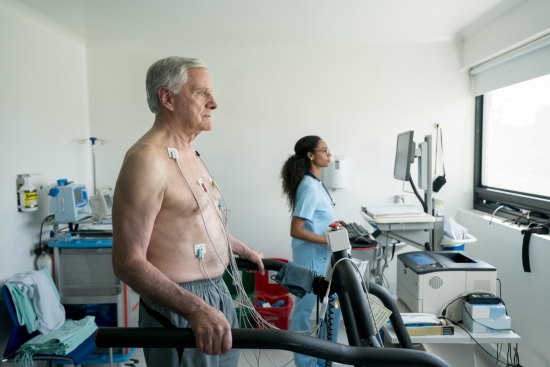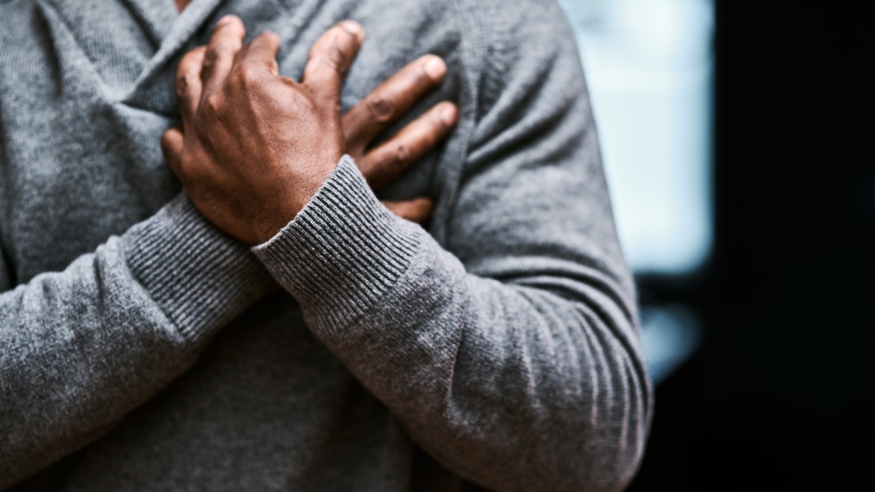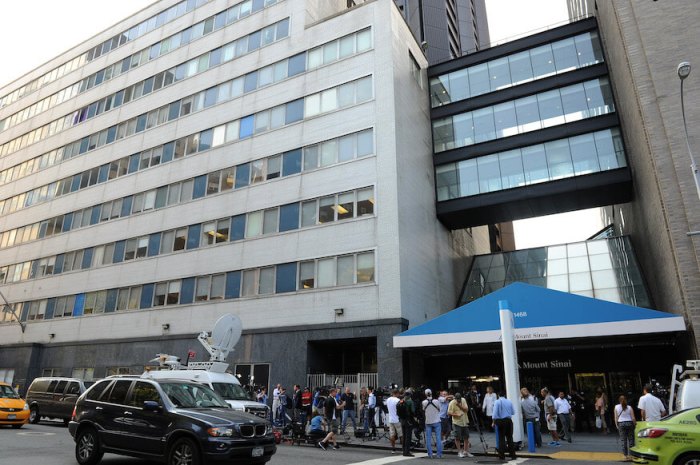Now that he’s an “ambassador” for WW (formerly Weight Watchers), actor and director Kevin Smith has been doing press and talking about his 58-pound weight loss. The actor was prompted to shed the pounds after he suffered massive heart a year ago at age 47. He didn’t see it coming. For Heart Awareness Month, we spoke to Dr. Samin Sharma, director of clinical and interventional cardiology at Mount Sinai Hospital, to find out warning signs and what you should do if you or someone you know starts exhibiting them.
The subtle signs of a heart attack

Photo: iStock.
What is a basic explanation of a heart attack — what happens to the heart during one?
The heart muscle requires a constant supply of oxygen-rich blood to nourish it. The coronary arteries provide the heart with this critical blood supply. During a heart attack, blood flow to a part of the heart is completely cut off due to clot in the artery over the blockage. This causes damage to heart muscle.
Many people are aware of the obvious signs of a heart attack: pain in the chest and left arm. What are the subtler signs that we might not be aware of?
Other signs of heart attack are difficulty in breathing (dyspnea), abdominal pain, nausea, vomiting, palpitation, dizziness, and perspiration. Heart attack symptoms usually start gradually, with the intensity of those symptoms coming and going. Many people who experience a heart attack have warning signs hours, days or weeks in advance.
Is it possible to have a heart attack but exhibit no symptoms? What is a “silent” heart attack?
A silent heart attack is like any other heart attack, except it occurs without the usual symptoms. This can be detected at a routine checkup. Get regular physical exams to stay on top of your heart health.
Women and men can have different symptoms; what are they?
If you have a family history of heart disease or a history of cigarette smoking, high blood cholesterol, obesity, or other risk factors, your chances of having a heart attack are higher. As with men, women’s most common heart attack symptom is chest pain or discomfort. But women are somewhat more likely than men to experience some other symptoms. Studies have shown that women have atypical symptoms like dizziness, dyspnea, and fatigue.
Is there anything you should keep on hand in case of a heart attack (aspirin, etc)?
Aspirin 325mg is your best friend if having a heart attack. If a nitroglycerine tablet is available, then put 1 tab under the tongue and repeat two to three times every three minutes. Then go to the Emergency room.
If you suspect you are having a heart attack, what should you do?
Besides taking aspirin, make sure to call for an ambulance or go to the nearest ER.
If you see someone else and suspect they are having a heart attack, how should you handle the situation?
In suspected cases, call 911 and go to the nearest hospital ER. Don’t ignore or attempt to tough out the symptoms of a heart attack. The earlier a person receives advanced medical help, the greater the chances of survival.
What leads people to ignore signs of a heart attack?
Many times atypical symptoms like stomach/abdominal pain or nausea can confuse the people and signs of heart attack are ignored. Also many times, patients have symptoms but they are preoccupied in other tasks of their life, that delay in seeking medical care.
























